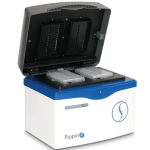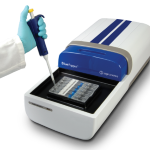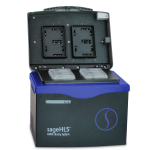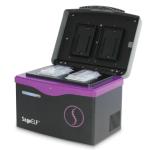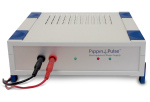The first day of ASHG 2014 has been a whirlwind of great science, engaging talks, and (of course) the inevitable zany environment of the exhibit hall. Attendees are swarming Oxford Nanopore’s booth, where representatives are apparently sequencing samples on-site.
Last night’s presentation of the Gruber prize for work with small, noncoding RNAs to Gary Ruvkun, Victor Ambros, and David Baulcombe provided attendees with a bird’s-eye view of this important area of research. Baulcombe noted that the association of small RNAs and epigenetics gives even more reason to study epigenetics in major research studies.
Other awardees honored today offered insight into how the greats approach science. David Valle, winner of the Victor A. McKusick Leadership Award, reminded attendees to be rigorous about what they know as well as what they don’t know — and to be open to change when new knowledge is available. The University of Michigan’s Gonçalo Abecasis, who won the Curt Stern Award with Mark Daly from the Broad, urged his fellow scientists to be fascinated by new ideas. “One person and a good idea can make a difference,” he said. He also cautioned people against placing too much importance on results that haven’t been properly interpreting, saying that data is not the same as understanding, and tools are not analyses.
This morning, ASHGers were treated to a remarkable presentation from Konrad Karczewski, a postdoc in David MacArthur’s lab at Massachusetts General Hospital and the Broad Institute. Karczewski spoke about the human knockout project, a sweeping effort to find loss-of-function variants in humans. These knockouts occur naturally in all people, but certain LoF variants might be used to guide pharmaceutical development if they can be properly linked with phenotypes, Karczewski told attendees. He presented a new analysis tool called LOFTEE and talked about new mechanisms his team has found, such as splice-creating variants, novel start codons, and more. MacArthur’s lab has been conducting a massive exome analysis project, providing ample data for the LoF study, and variants from 63,000 exomes will be released by the lab today.
Like many ASHG attendees, we’ve noticed the prominence of genomics at this genetics meeting. Big data has been a watchword for many here — in one session, representatives from Google and IBM spoke about the need to ramp up data analysis as large new studies are conducted and reported all the time — and we are glad to see the emphasis on high-quality bioinformatics.
We look forward to updating readers again as ASHG 2014 continues!
